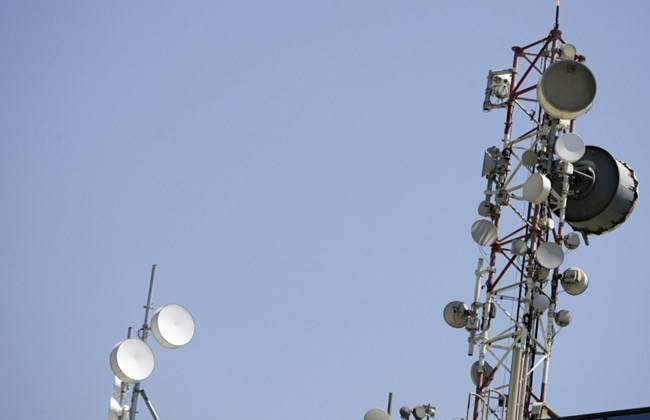
With little state electricity, Lebanon’s communications backbone has become reliant on diesel, which is in short supply. (Credit: Joseph Eid/AFP)
Want to get the Morning Brief by email? Click here to sign up.
Lebanon is teetering “on the edge” of a nationwide internet outage, the head of the state-owned telecom company told L’Orient Today. With the state electricity utility providing less and less power in recent months, Ogero, the backbone of the country’s communications infrastructure, is burning through 100 tons of diesel a day to feed power to its substations around the country — four times the amount it consumed before the economic crisis. But chronic diesel shortages, as well as generator breakdowns and a lack of funds for Ogero to carry out maintenance, mean the generators may soon be shut off, forcing the telecom infrastructure offline and plunging the country into a communications blackout that experts predict would have devastating consequences.
Bottled water is the latest essential staple to be hit by shortages as a result of the fuel crisis. Fuel shortages have forced bottling factories to reduce operations and therefore output, causing some consumers to encounter empty supermarket shelves and limits on water purchases. Bottled water is a basic necessity in Lebanese households because of the poor quality of tap water resulting from pollution and inadequate water infrastructure. Even taps may soon run dry as water pumping stations are themselves being forced to stop operating partially or in some cases entirely due to the fuel crisis. The Beirut and Mount Lebanon Water Establishment announced a “severe” rationing program yesterday; its counterpart covering northern Lebanon warned that power cuts would negatively affect distribution.
Authorities are continuing to crack down on hoarding and smuggling in a belated show of force. On Tuesday the Internal Security Forces reported having seized 1.5 million liters of gasoline that were illegally hoarded in Zahle as part of a series of raids across the country. Not to be outdone, State Security then issued a press release saying it had seized 1.63 million liters of fuel since the beginning of July. Speaking from the Grand Serail yesterday, caretaker Prime Minister Hassan Diab promised to take “firm action” against hoarders and smugglers. The night before, caretaker Health Minister Hamad Hassan participated in a raid on a Nabatieh warehouse allegedly hoarding large quantities of medicines, diapers and infant milk. The raids are coming too little too late, as the state has already begun ending subsidies on fuel and medicine in what it says is an effort to curb the smuggling of subsidized goods to Syria. Critics have accused the government of using its haphazard enforcement efforts as publicity stunts.
Some 15,000 workers are participating in a weeklong general strike to improve wages and benefits amid a collapse in purchasing power, Bechara al-Asmar told L’Orient Today. The president of the General Confederation of Lebanese Workers announced the strike on Monday — the most recent in a handful of protest measures held by the union in recent months. It is being staged in concert with the union of workers in independent interests and public and private institutions, which says roughly a dozen of its member unions are participating. The striking workers come from the National Social Security Fund, the state tobacco company, Ogero, Électricité du Liban, the Beirut port, and other public and semipublic institutions.